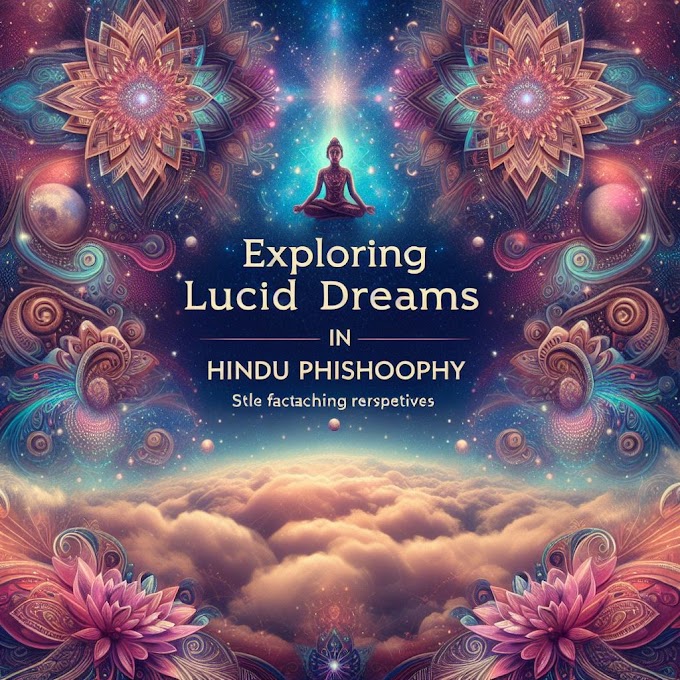Listen to this article
Can Lucid Dreaming Cause Schizophrenia?
I make you clear that there is no strong scientific evidence to suggest that lucid dreaming can cause schizophrenia. Schizophrenia is a serious mental disorder characterized by symptoms such as delusions, hallucinations, disordered thinking, and abnormal behavior. These symptoms are not typically associated with lucid dreaming.
However, some people with schizophrenia may experience lucid dreaming as a symptom, but it is not the cause of the disorder. People with schizophrenia may have difficulty distinguishing their dreams from reality, and this can lead to confusion and confusion between what is real and what is imagined.
It's important to note that lucid dreaming is a normal phenomenon that can occur in healthy individuals and it's not a disorder or a disease. If someone is experiencing confusion or distress related to their lucid dreams, then I advised them to consult with a mental health professional.
Are there any studies that have investigated the relationship between lucid dreaming and schizophrenia?
I have gone through hours of research on the internet to find some studies that investigated the relationship between lucid dreaming and schizophrenia. And finally, I have found some studies but these have generally been small and have yielded mixed results.
One study published in the Journal of Nervous and Mental Disease in 2000, found that people with schizophrenia had a higher incidence of lucid dreaming than healthy controls, and that lucid dreaming was associated with better sleep quality and less distress. However, the study was relatively small and had a number of limitations, so the findings should be interpreted with caution.
Another study published in the Journal of Sleep Research in 2009, found that people with schizophrenia did not have a higher incidence of lucid dreaming than healthy controls, and that lucid dreaming was not associated with any particular symptom or subtype of schizophrenia.
It's important to note that more research is needed to fully understand the relationship between lucid dreaming and schizophrenia, and more robust studies are needed to confirm these findings.
How can someone with schizophrenia tell the difference between a lucid dream and a hallucination?
It can be difficult for someone with schizophrenia to tell the difference between a lucid dream and a hallucination, as both can involve vivid, realistic sensory experiences that may be mistaken for reality.
However, there are some key differences that may help someone with schizophrenia distinguish between a lucid dream and a hallucination:
- Timing: Lucid dreams typically occur during the REM stage of sleep, whereas hallucinations can occur at any time, including during wakefulness.
- Control: In a lucid dream, the dreamer is aware that they are dreaming and may have some degree of control over the dream content, whereas, in a hallucination, the person has no control over what they are experiencing.
- Duration: Lucid dreams tend to be shorter in duration than hallucinations.
Reality testing: Someone can use reality testing to check if they are dreaming or not. For example, if an individual tries to read a text or a clock in a lucid dream, the text or clock will be distorted or unreadable, while in reality, it should be clear.
Can lucid dreaming be used as a therapeutic tool for people with schizophrenia?
There is some preliminary research that suggests that lucid dreaming may have therapeutic potential for people with schizophrenia.
For example, a study published in the Journal of Nervous and Mental Disease in 2000 found that lucid dreaming was associated with better sleep. Additionally, some studies have reported that people with schizophrenia who were trained to have lucid dreams were better able to control the content of their dreams, which may reduce the frequency or intensity of distressing dream themes.
Conclusion:
In conclusion, the idea that lucid dreaming can cause schizophrenia is not supported by scientific research. While some people with schizophrenia may experience lucid dreams, this is not a cause-and-effect relationship.
Lucid dreaming is a normal phenomenon that can be experienced by anyone, and it has been found to have many potential benefits such as improved emotional regulation, problem-solving skills, and self-awareness.
With this, I will end my article, with a lovely quote from myself Sandeep Yadav, "A lucid dream is the king of all kinds of dreams. It is prominent. It is supreme."

.png)



.png)







